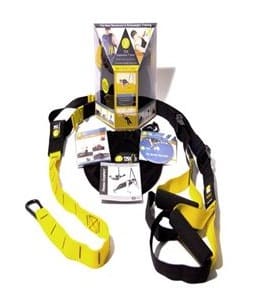For most Americans, finding time for the gym can be a daunting enough task in itself. But for those who take their physical fitness seriously, investing not only time but also money in cutting edge equipment and clothing, it shouldn’t also be an exercise in personal risk. After all, there’s a given amount of risk that goes into basic fitness in the first place, so the potential for injury shouldn’t be increased as the result of defective gear that is actually supposed to be helping consumers. This week, the popular TRX Suspension Trainer device was recalled for that very reason.
Fitness Anywhere LLC has announced the recall of approximately 40,000 TRX Suspension Trainer Devices that were manufactured between January 2006 and July 2007, according to today’s report by the U.S. Consumer Product Safety Commission. Professional (P1) and Tactical (T1) devices in particular have been reported as the causes for as many as 570 cases of buckle breaks that have led to at least 13 cases of head, face, shoulder and hip injuries.
According to the company’s website, suspension training became popular in the U.S. military and eventually carried over into professional athletics training, with New Orleans Saints quarterback Drew Brees acting as the face of the TRX brand. According to the company’s press release, the defective straps were sold as recently as 2009, costing consumers between $150 and $200, and can be identified as such:
“The recalled products’ anchor straps are yellow or khaki nylon with a carabiner at the top end and a black nylon loop on the bottom end. A black and yellow or black and khaki nylon strap is threaded through the black nylon loop on the anchor strap to form a “Y.” On each side of the “Y,” the strap has a cam buckle, which is used to adjust the length of the straps. Each end of the “Y” strap has a foam-covered hand grip and a foot cradle.”
Before attempting to return the suspension trainers, consumers should contact Fitness Anywhere at (888) 221-7417 or by email at CustomerCare@trxtraining.com. The company has to issue return authorization before it can replace any defective training devices; however, it is far more important that consumers cease using these devices immediately.


